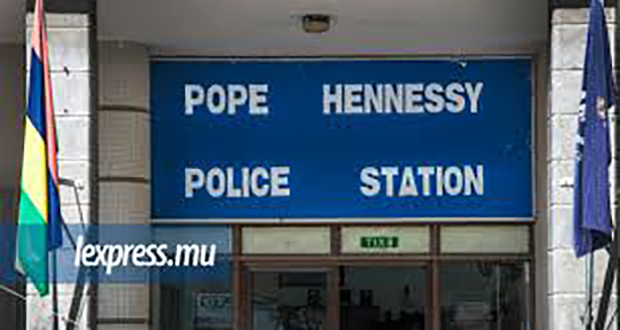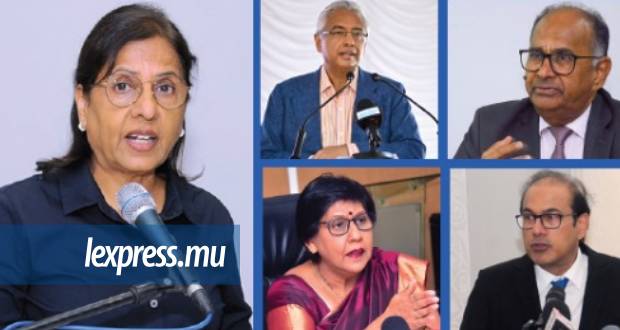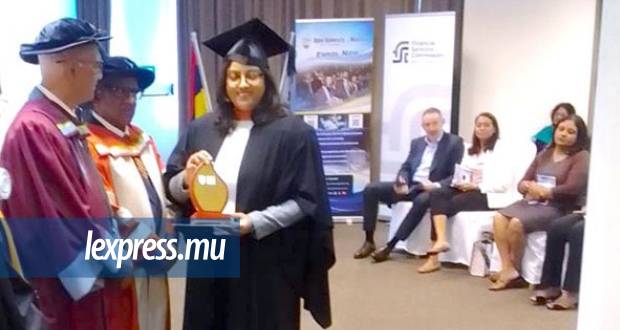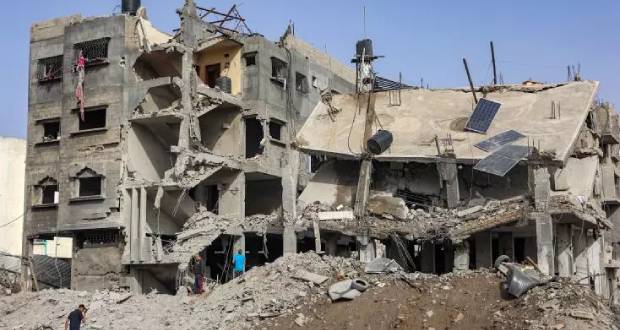Publicité
Jocelyn Chan Low: “Mourning a historical trauma starts with discussing the subject openly and addressing the contemporary problems it might have led to.”
Par
Partager cet article
Jocelyn Chan Low: “Mourning a historical trauma starts with discussing the subject openly and addressing the contemporary problems it might have led to.”
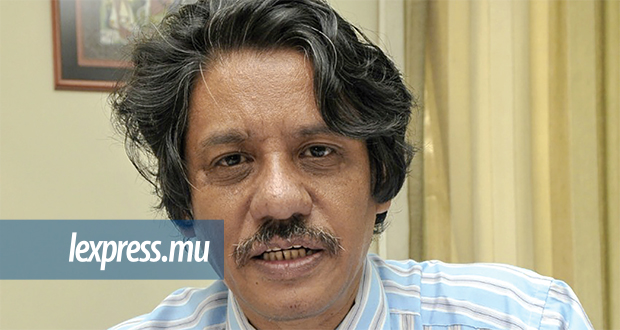
A live video by an activist landed her in hot waters after a complaint by IBL CEO. The debate that ensued on social media was polarised, at times with communal overtones. We approached Jocelyn Chan Low, historian, for a full historic and social perspective of this tempest and the way forward. He offered undiluted views on issues many people shy to even mention. Goodbye taboos. Welcome Jocelyn Chan Low.
A video by Activist Aruna Gangoosing, a lawsuit by IBL CEO Arnaud Lagesse and historical demons have been unleashed on social media. It seems that there is unfinished business in our island. Can you give us a historic perspective?
It’s now clear that we have not been able to mourn the cruellest parts of our history, based on the sordid exploitation of man by man through the vile system of slavery and later indentured labour. This systemic violence has indeed been a great trauma on the majority of our forefathers.
Horrific though these events were, it was such a long time ago, wasn’t it?
Yes, but it’s not that easy to forget that our country has been forged on the blood, sweat and tears of thousands of slaves and indentured labourers. We have tried to get over this through a programme of reparations by acknowledging the contribution of those slaves and indentured labourers to the national historical narrative of the construction of Mauritius, by honouring their memory through public holidays, the erecting of dedicated monuments, their inclusion in school textbooks, etc... In that respect, a lot has been done compared to colonial days and even the early years of independent Mauritius.
You will concede that such symbolic acts give dignity to the descendants of slaves and indentured labourers, don’t they?
They do give more dignity to the descendants, direct or indirect, of those who have been crushed by the weight of history. But reparation involves much more than symbolic gestures, much more than the setting up of a museum or an interpretation centre. The Truth and Justice Commission did make more practical recommendations but much of these have still not been put into practice.
Why is moving through grief taking so much time?
Slavery and indenture are still live issues because what we call the ‘historical bourgeoisie’ still holds the reins of economic power and are very powerful lobbies on the politicians too as the latter seem to depend heavily on them for political financing so they have managed to keep much of their influence even after political democratisation and independence and they indeed hold the reins of power behind the scenes. In his in his PhD thesis, Tijo Salverda – like many other academics – said much of what Aruna Gungoosingh said in her notorious live video but in an academic and polite way, not in our rather ‘flowery’ kreol morisien. That’s the main difference!
“Arresting her on a provisional charge and putting her in a prison without bail for days made her a martyr of both the political and the economic establishments. For there are many allegations that authors of live videos aimed really at stirring communal hatred are being left unpunished, perhaps because they are chatwas.”
Did you expect the video to take on such dimensions?
Sincerely no and I really believe that the video by itself would not have had such an impact had Arnaud Lagesse not entered the scene. Another live video on another subject with the same flowery language would have followed and people would have forgotten it altogether...Besides many have said that much in private political meetings to rally their electorate. Usually, for the historical bourgeoisie, it had been dilo lor bred sonz. They simply shrugged it off as such utterances cannot impact the hold they have on the country. Besides, that’s why they usually keep a low profile. Hence, the intervention of the CEO of IBL was unexpected and stirred a hornet’s nest, opening old wounds, leading to appeals of boycott against certain companies of the group while many rallied behind Aruna Gungoosingh.
How did that support suddenly build up?
Firstly, she does not fit the description of what a racist person is; she criticises injustice coming from whoever irrespective of their community. She also helps homeless people, defends the poor Creoles, castigates Indian officers of the National Coast Guard etc...In fact, she gives us the picture of a truly Mauritian patriot fighting the evils of society with the means she has at her disposal.
Where does she draw her support from?
She has a very wide following not only from people at the bottom of the social ladder but even from part of the intelligentsia.
But the language she uses is really foul, isn’t it?
Yes, some, particularly the intelligentsia, may disapprove of the vulgarity of the language but they can relate to the gist of her arguments. Arresting her on a provisional charge and putting her in a prison without bail for days made her a martyr of both the political and the economic establishments. For there are many allegations that authors of live videos aimed really at stirring communal hatred are being left unpunished, perhaps because they are chatwas. Fortunately, she has now been released on bail and in an exercise of damage control the police have stated that it’s not the action of the CEO of IBL that has led to her arrest....
What is the reason behind such resentment over 50 years after independence?
To understand the scale of the resentment, we need to ask ourselves that most important question: what has changed fundamentally in our power structure since independence? The Marxists would say a deal has been struck between the historic and state bourgeoisies over a share of power. It is true that the historic bourgeoisie is a national bourgeoisie which some socialist leaders elsewhere tried to favour against foreign companies. Besides, the presence of a solid local bourgeoisie has greatly helped in the economic take off of the island as they provided the necessary capital. SSR used to tax their profits to finance the development of the welfare state. Today, Mauritius can be described as one of the rare social democratic states of the southern hemisphere precisely because of SSR’s wisdom. But this cannot hide the fact that there has been, at the same time, a greater concentration of economic resources in fewer hands. In the 1970s, the MMM in its revolutionary phase, used to talk of 14 families controlling the Mauritian economy. This has shrunk to four. But the MMM has completely changed as it became an integral part of the system. However, that does not mean that class contradictions have disappeared. Indeed across the globe we do see today a resurgence of the far left, especially as the global economic crisis deepens.
The issues of land distribution and compensation for slavery keep cropping up. Realistically, can that be implemented? Who is going to pay what to whom and why?
Monetary compensation for slavery is a very complex issue and difficult to put into practice from a legal standpoint and the problem of land distribution is an even more complex one. It is a fact that the greater part of the land in Mauritius belongs to a few families with the east, west, north and south in the hands of a separate conglomerate. The question is: besides obtaining concessions legally, has the historic bourgeoisie benefitted from land dispossession to the detriment of descendants of slaves and indentured labourers? There are surely some genuine cases among the ones identified by the Truth and Justice Commission and it will be up to the court to sort things out. However, there are a few issues which go beyond the jurisdiction of any court. Firstly, prescription of land was a simple matter until the 1980s and in the 19th century and we all know the proximity between the oligarchy and the notaries and the Judiciary. And the feeling that their ancestor has been robbed of their land is widespread in the Creole community. I was in charge of the ‘Oral history of the descendants of slave project’ for the Truth and Justice Commission while I was at the University of Mauritius and if you look at the report, you will see that a majority of respondents state that their forefathers have been illegally dispossessed of their land by the tabisman.
“The MMM in its revolutionary phase, used to talk of 14 families controlling the Mauritian economy. This has shrunk to four.”
How much truth is there in such claims?
If you look at the Census of 1846, you will see that within seven years of their liberation from apprenticeship, a good percentage of the ex-apprentices had acquired land and described themselves as independent cultivators (mainly of food items). They were mainly – but not only – concentrated in Pamplemousses and in the Moka district because of easier access to the market of Port Louis. And before the advent of the sugarcane cultivation in the area, Moka district was mainly inhabited by these ex-apprentices. But by the end of the century, things had changed completely in that district. I have personally come across some echoes of struggles over land in the district in the 1860s and 1870s while working on the Malagasy Christian refugees who fled religious persecution by Queen Ranavalona 1 in the 1830s. Led by Mary Rafaravavy, they settled in Moka and worked extensively with the ex-apprentice community, many of whom were Malagasy. One of them was a child who later went to study law in Britain before coming back to Mauritius. It is said in the secondary sources that I have consulted that he stood for many descendants of ex-apprentices in their fight against the dispossession of their land by sugar estates. That’s why I think that more research on the evolution of land ownership in that particular district might be quite revealing.
Assuming there was dispossession, if the prescription was done through the legal process, what means of redress are there?
In South Africa, oral evidence about land ownership was accepted by the Land Restitution Tribunal but it was the state that funded in great part the compensation. However, over there, land is not as costly as in Mauritius and we cannot follow that example.
So what is the solution?
I think we should look beyond the issue of reparation and instead address the contemporary problem of the too great divide in the distribution of wealth and land assets in the country. Socialists have always stood against a too great concentration of wealth which they believe is both immoral and unjust and fought for more egalitarianism. The solution lies there. The state should take every opportunity to retrieve as much land as possible from big landowners, especially when they come to ask for favours from the state in terms of fiscal alleviation or support in times of crisis. And the land acquired could then be redistributed on lease to the underprivileged.
Is talking about such issues not likely to weaken our already fragile social fabric?
As a mature society, we should talk about all issues that affect our everyday lives and the development of our country. But it all depends on the way in which the discussion is conducted and the tone adopted. In a not-too-distant past, it was thought that the mere mention of slavery would lead to tremors, upsetting the social order and a veil of silence was hence put on slavery. But you cannot sweep contentious issues under the carpet forever. Not only did academics start to research the subject but Rastas and Seggae men too started to sing about slavery and it all erupted in the open. Today it’s no longer a taboo subject. Mourning a historical trauma starts with discussing the subject openly, without concessions and addressing the contemporary problems it might have led to.
Can’t we talk about these subjects dispassionately and clinically, while putting everything in its historical context and avoiding hasty judgements?
It easy to say that but it’s always difficult to deal with subjects that have a great emotional content. As some academics will reply to you, you can’t talk dispassionately and clinically about the Holocaust or Auschwitz, for example, otherwise you might end up being a revisionist and portray Hitler as a normal, typical German statesman! Slavery was indeed a crime against humanity.
Back to the present: a second confinement, the economy in tatters, no clear exit plan that we know of…What is your state of mind when you look at this?
It’s all frightening and it reminds me of a song by the group Ziska Kan from Reunion island: Pei bato fou. However, to be fair, in the last budget, the government did announce that its strategy would be to stimulate economic growth through heavy public expenditure – billions of rupees were mentioned – in public works while favouring self-sufficiency in food production and helping SMES engaged in the manufacturing of other local products. At the same time, it would use the funds from the Bank of Mauritius to prevent a social catastrophe through financial assistance both to enterprises, employees and the self-employed. The problem is to what extent the government has achieved its targets when it comes to public work projects, especially given the bureaucratic process involved. As to food self-sufficiency we need figures before making any assessment. But we should definitely work towards re-engineering our economy so that it becomes less dependent on the external market and supply chains in the long run. The present crisis has its roots in the pre Covid-19 period.
The closing of borders didn’t help either, did it? Is the announced re-opening by August good or bad news in your opinion?
This is bad policy because we are lagging behind in our vaccination campaign with the majority of the elderly not yet vaccinated. While our borders were closed except to Mauritian nationals or residents returnees, we contracted a second wave of Covid-19, leading to a new lockdown despite assurances that all the protocols were being strictly followed. A real feat! Now can you imagine what would happen once we let in tourists coming from countries still struggling with Covid-19 and its new variants? It's crystal clear we would be heading towards a third wave, with a new lockdown affecting both the economy and the school calendar. Maybe the authorities are betting on a stop-and-go strategy but many analysts have shown that such a strategy is deficient and less rewarding than aiming at a Covid-free and Covid-safe situation before economic recovery. Therefore the opening should happen only after at least 900,000 Mauritians have been vaccinated. And this takes us far beyond August 2021 due to the incapacity of the authorities to plan ahead and pre-order the necessary vaccines.
Four members of parliament expelled, three suspended indefinitely, how do you feel watching parliament today?
It’s a hopeless situation. After the great demonstration, through huge crowds at citizens’ marches, that a great part of the population does not adhere to the strategy of the government of an all-out confrontation with its opponents, we thought things would have changed. The more so as the tasks in front of the government are so daunting that the situation may necessitate a pooling together of all resources to overcome the multi-faceted crisis. But this did not happen. We are moving away from a political culture of consensus towards one that thrives on outright and direct confrontation. And it’s taking its toll on the working of our institutions.
As we speak, a case is being filed against the speaker, which raises the point of whether parliament is sovereign or not. Where do you stand in this debate?
In theory, it’s the people that are sovereign and parliament is an expression of this popular sovereignty. Except that this time the government support amounts to around 37% of the population and the members of the opposition combined have around 60% of popular support.. But while the constitution recognises the sovereignty of parliament in legislative matters and the separation of powers, it also contains clauses that define Mauritius as a democratic state. Can you suspend indefinitely an elected member from parliament? Is that democratic or is it a sign of growing autocratic behaviour? The Judiciary, through Judge Rajsoomer Lallah, did intervene in the case of the attempt at disqualifying Dr Ramgoolam as an MP through a colourable device. Let’s wait and see how it will react this time.
Publicité
Les plus récents
